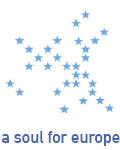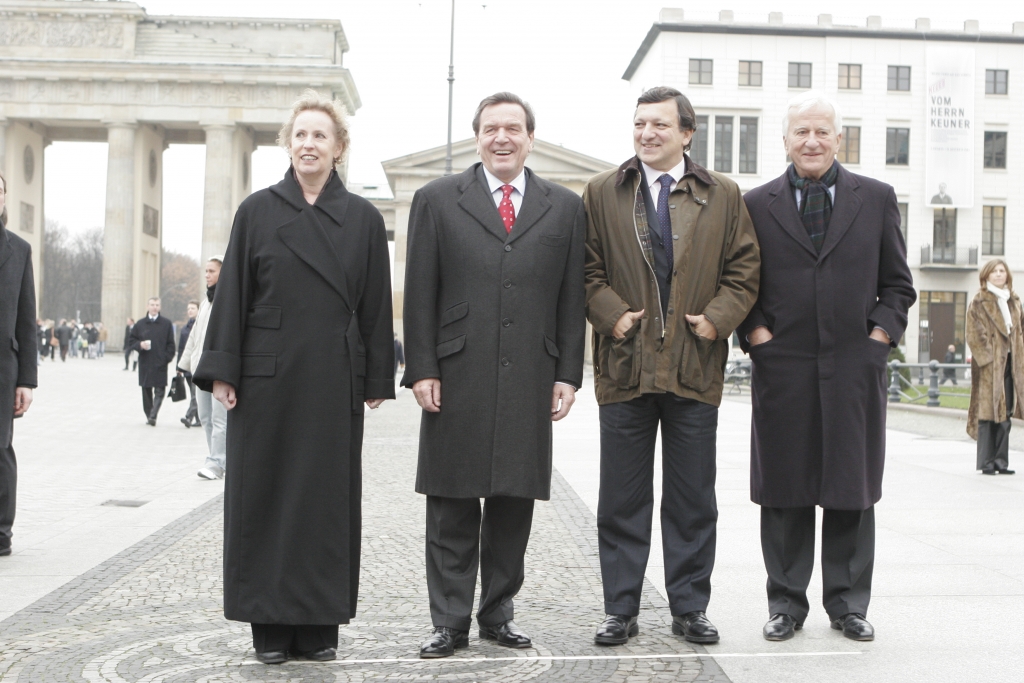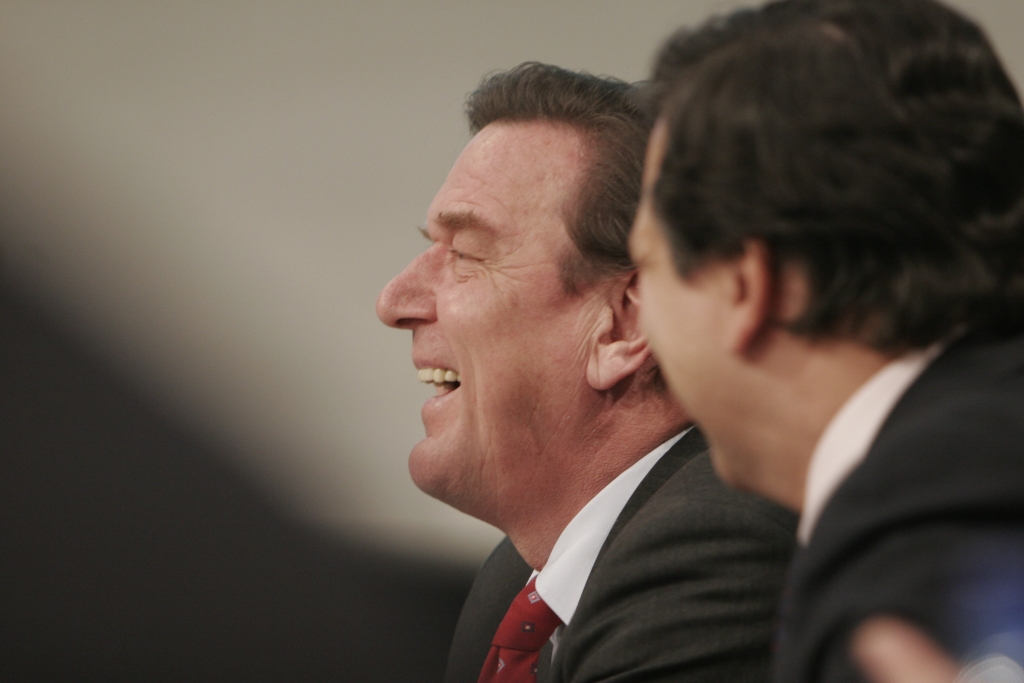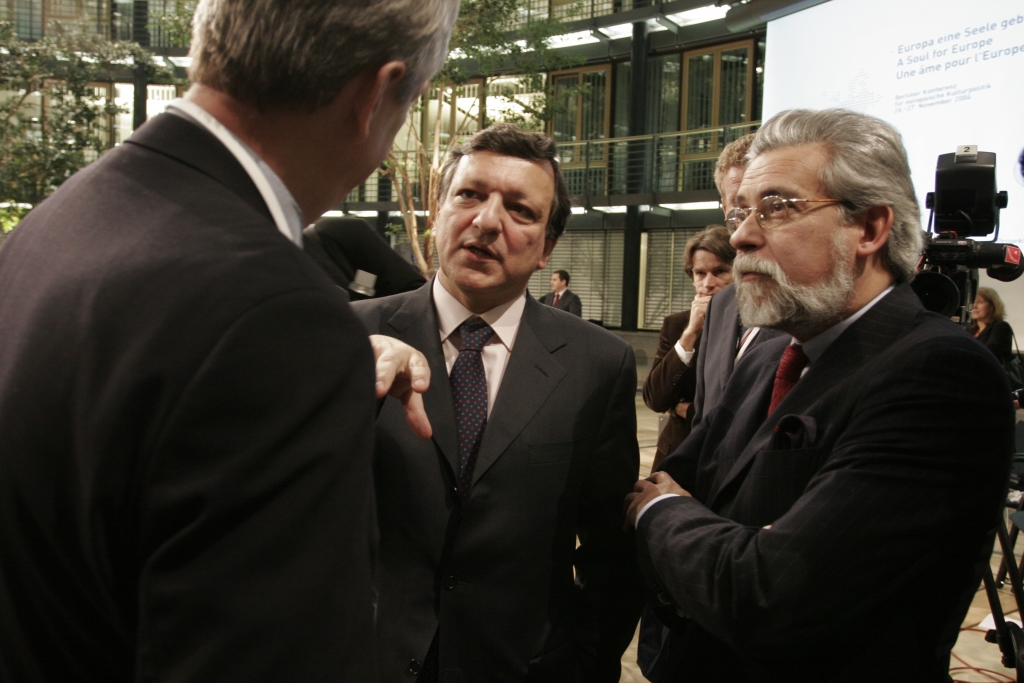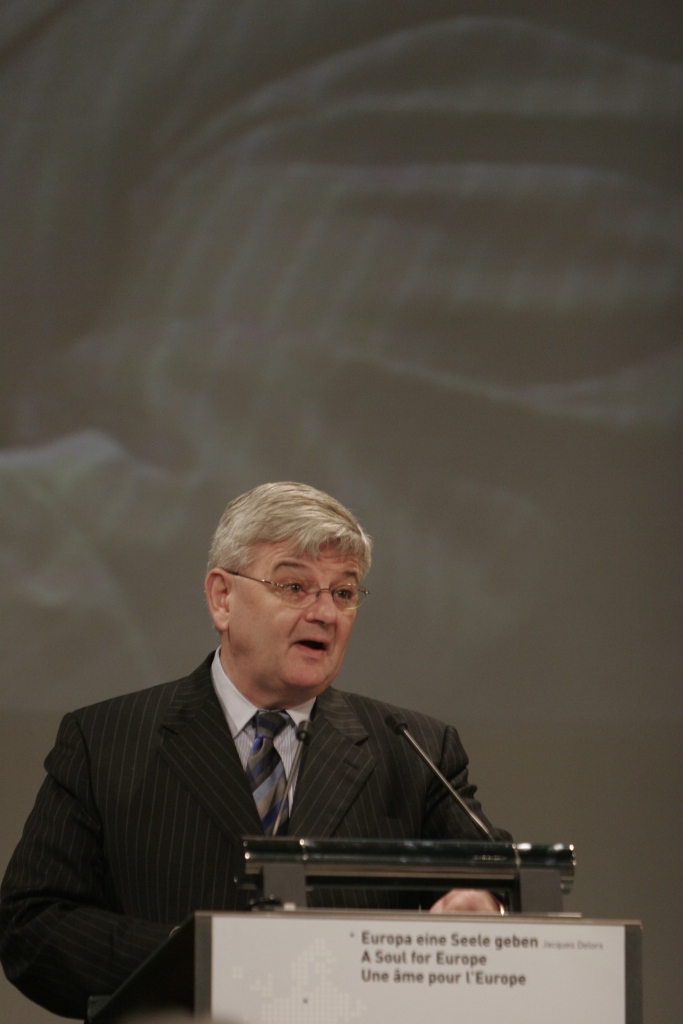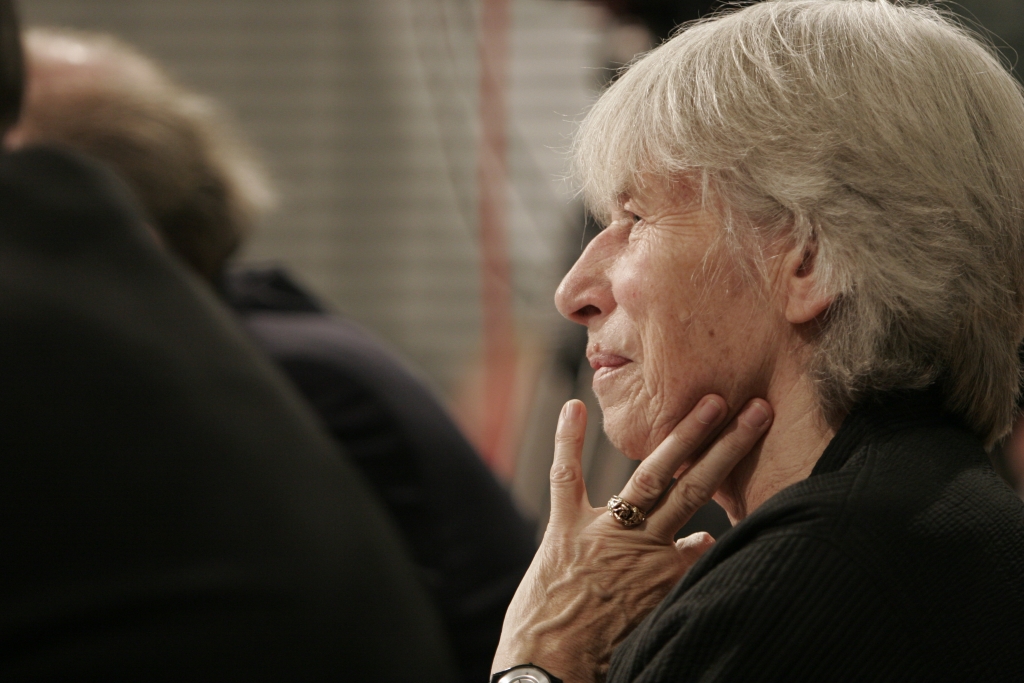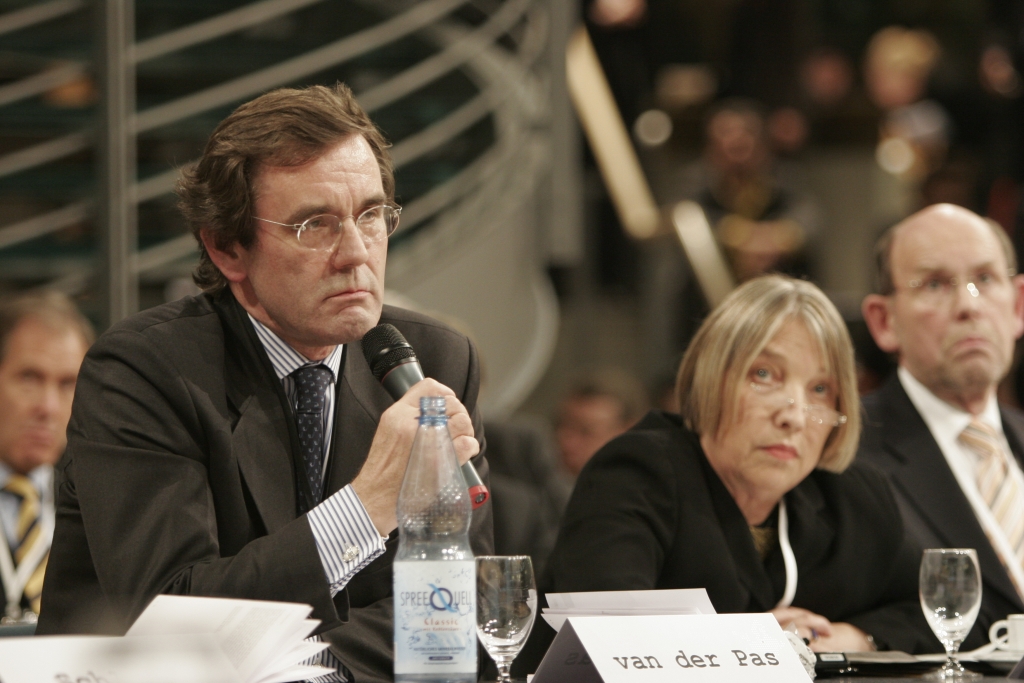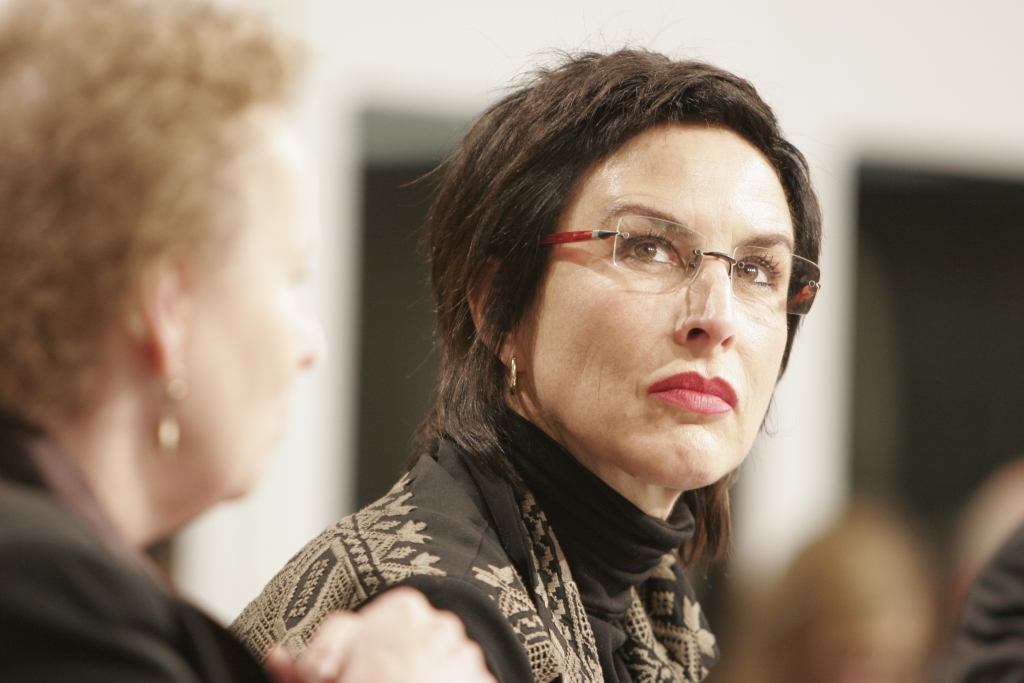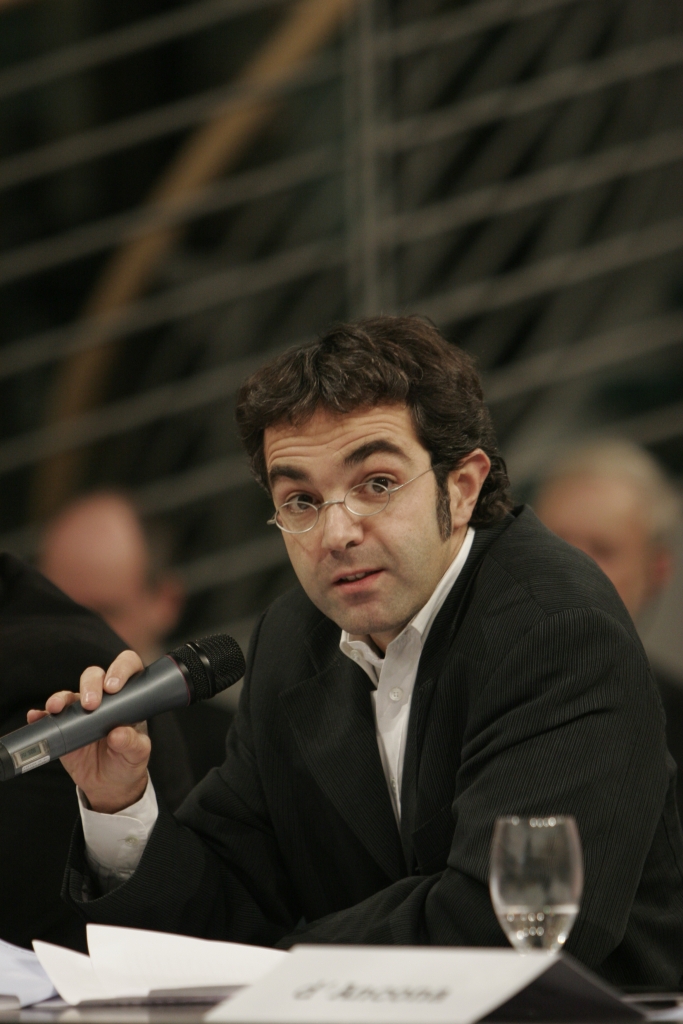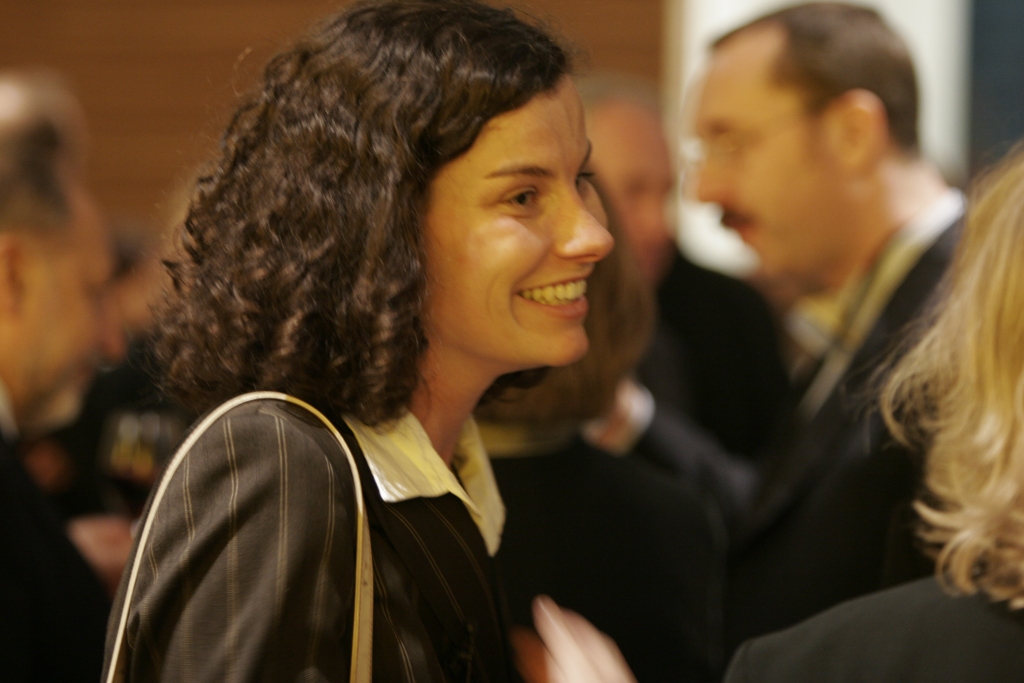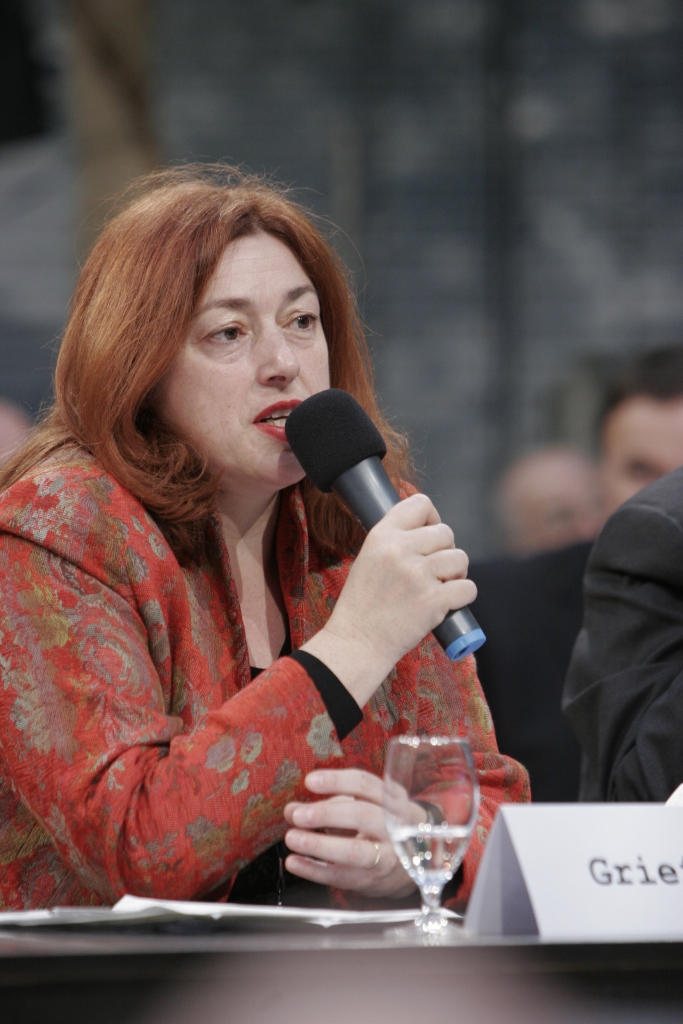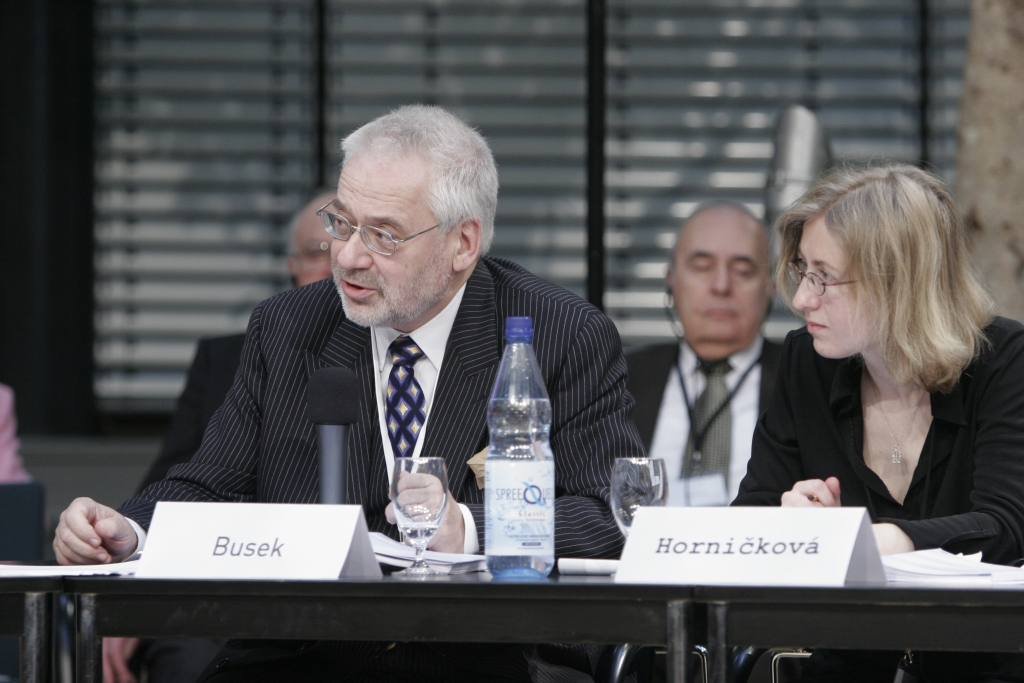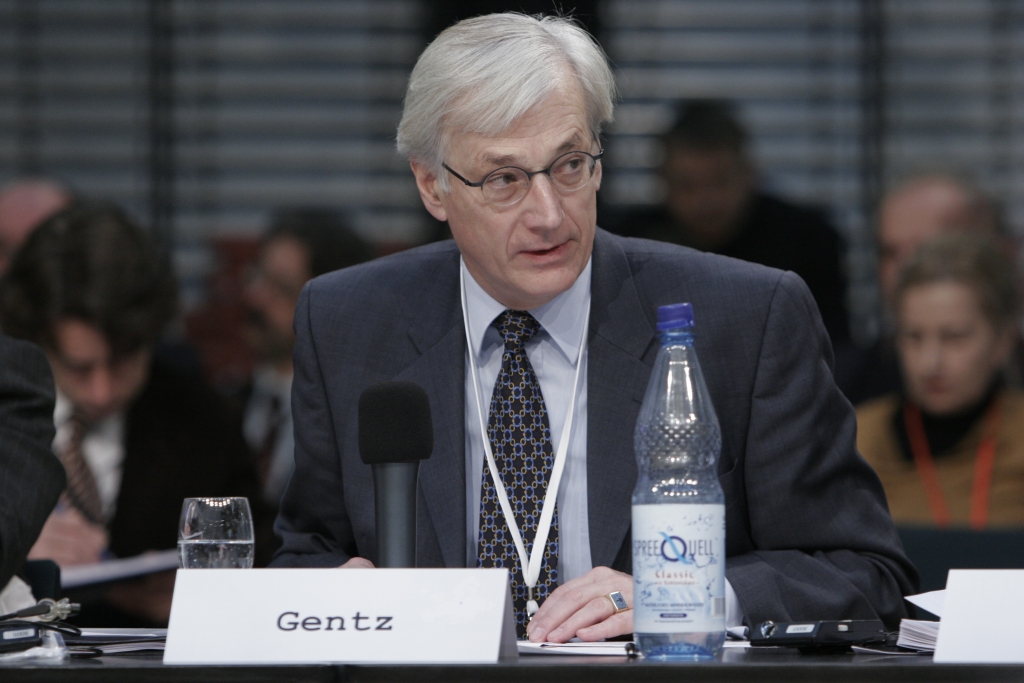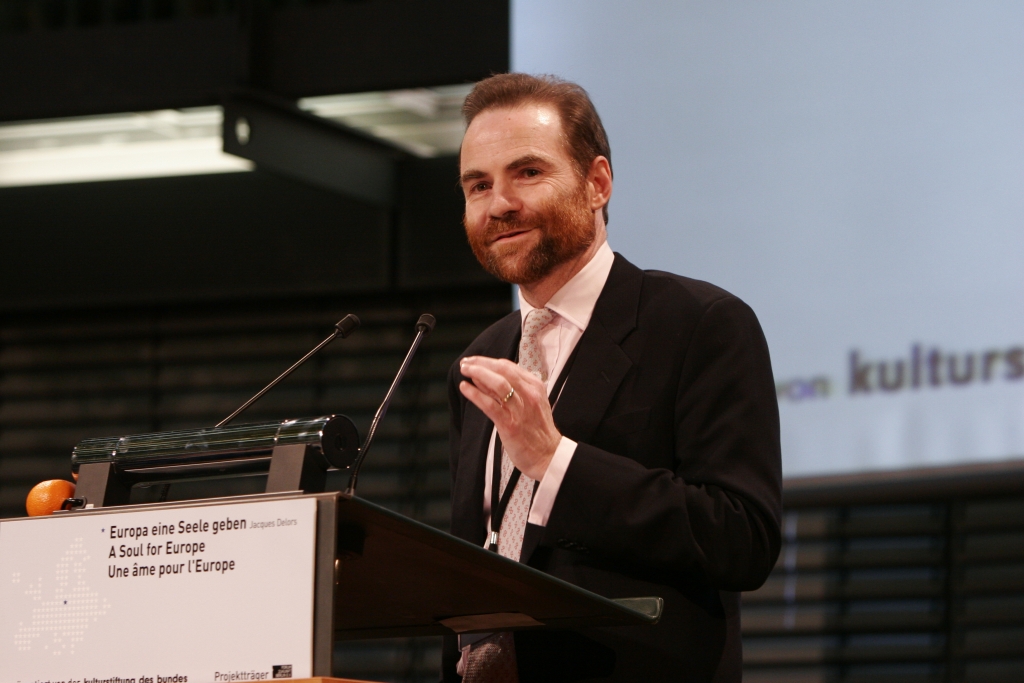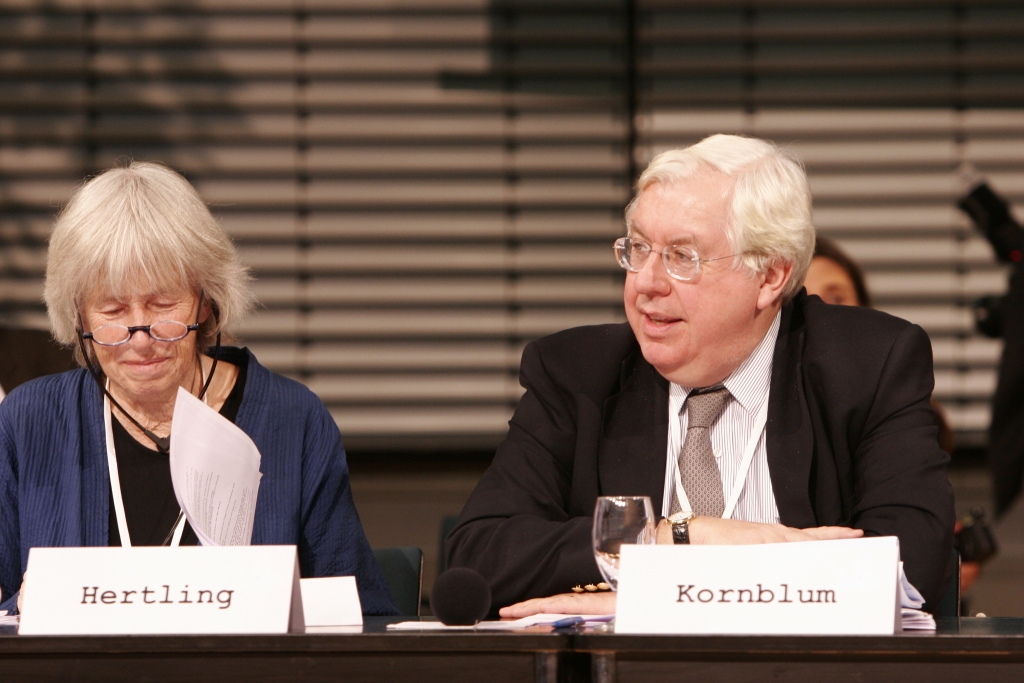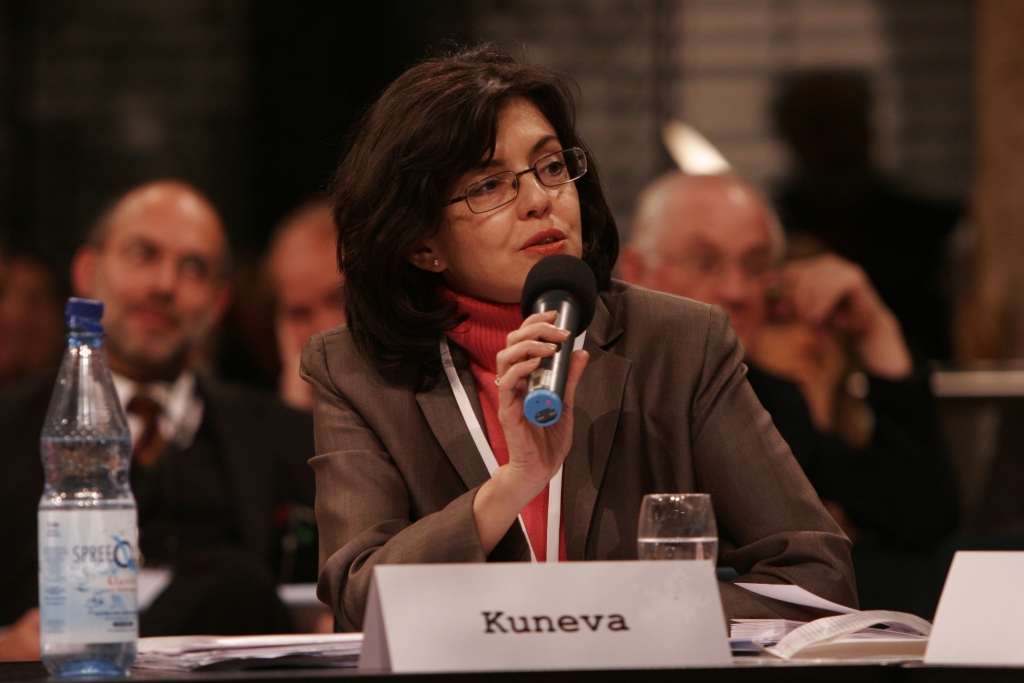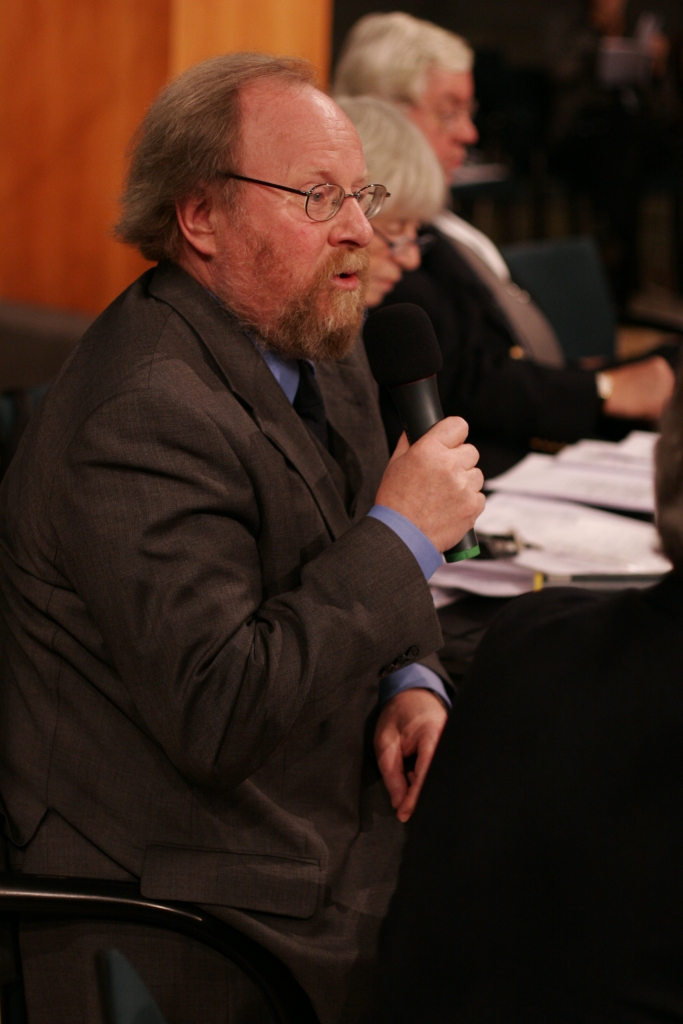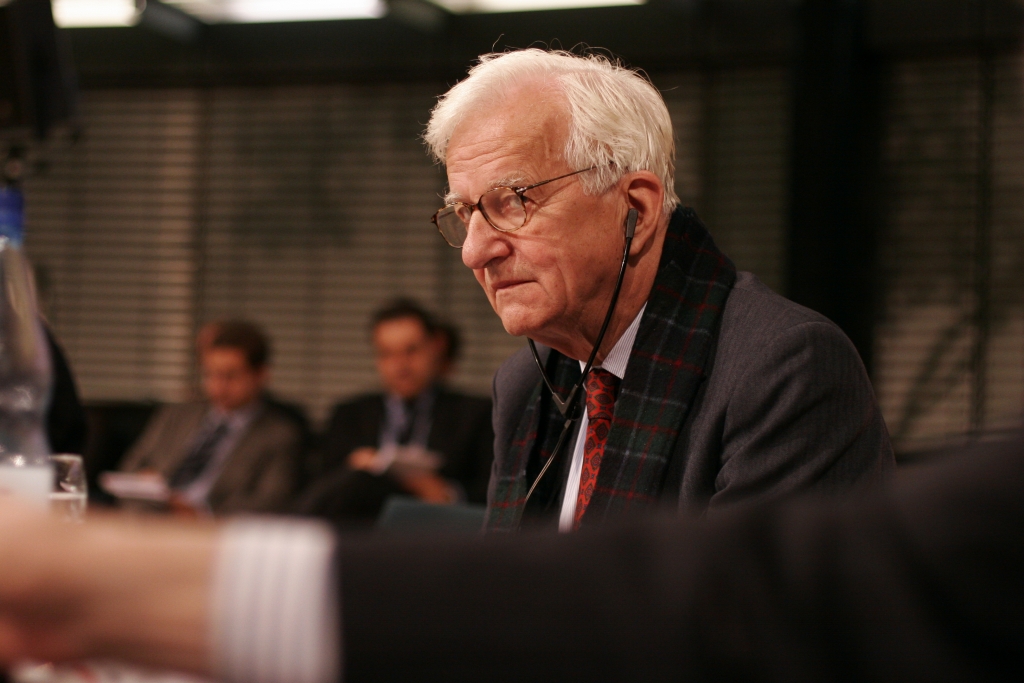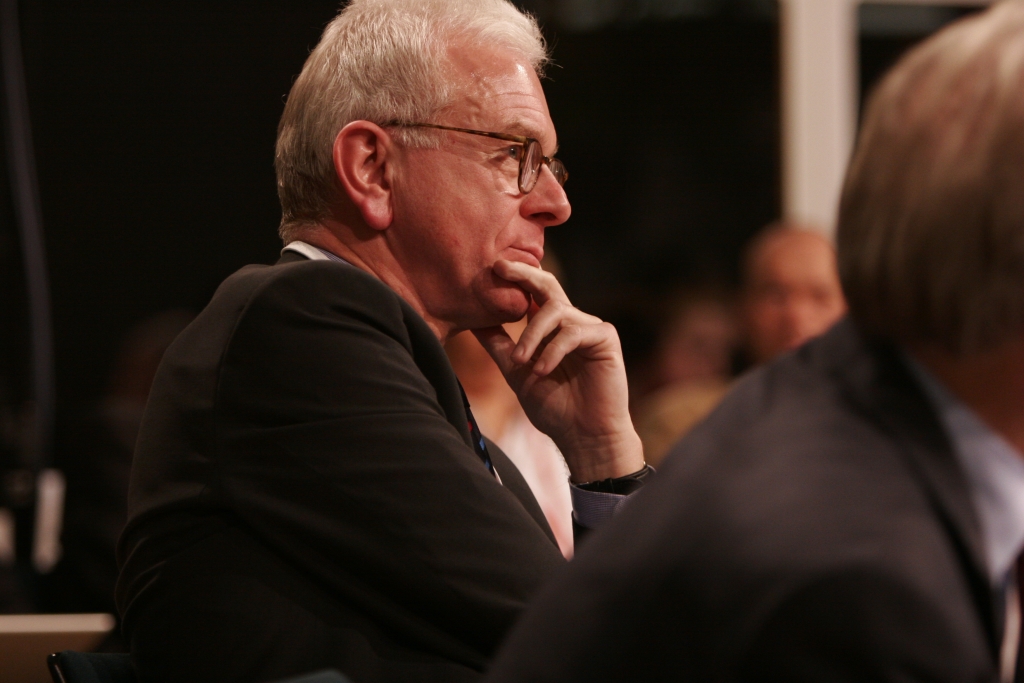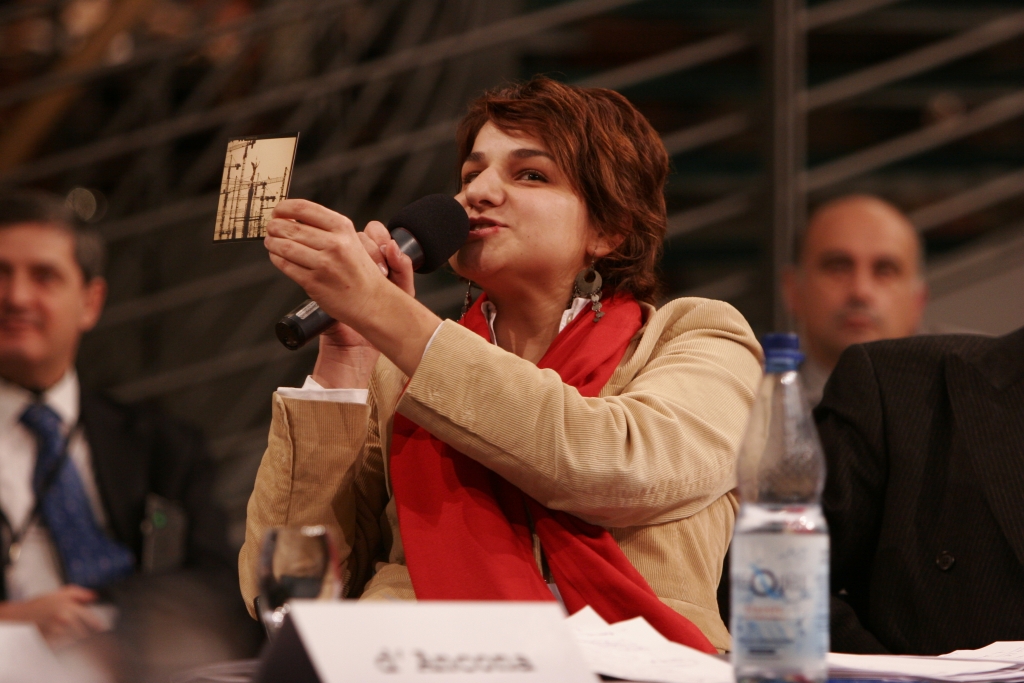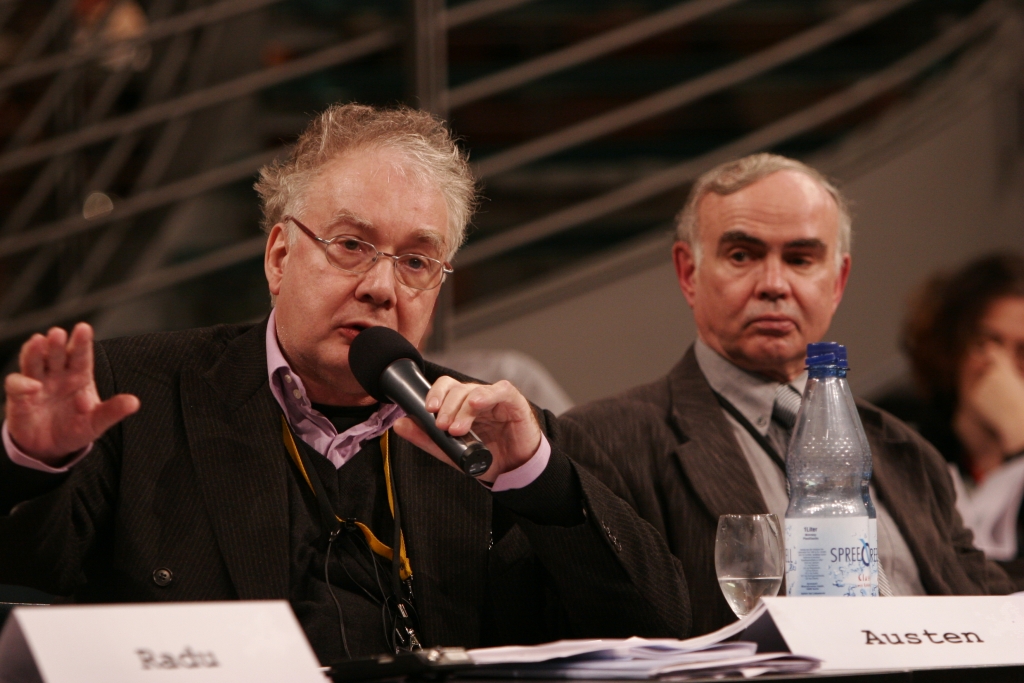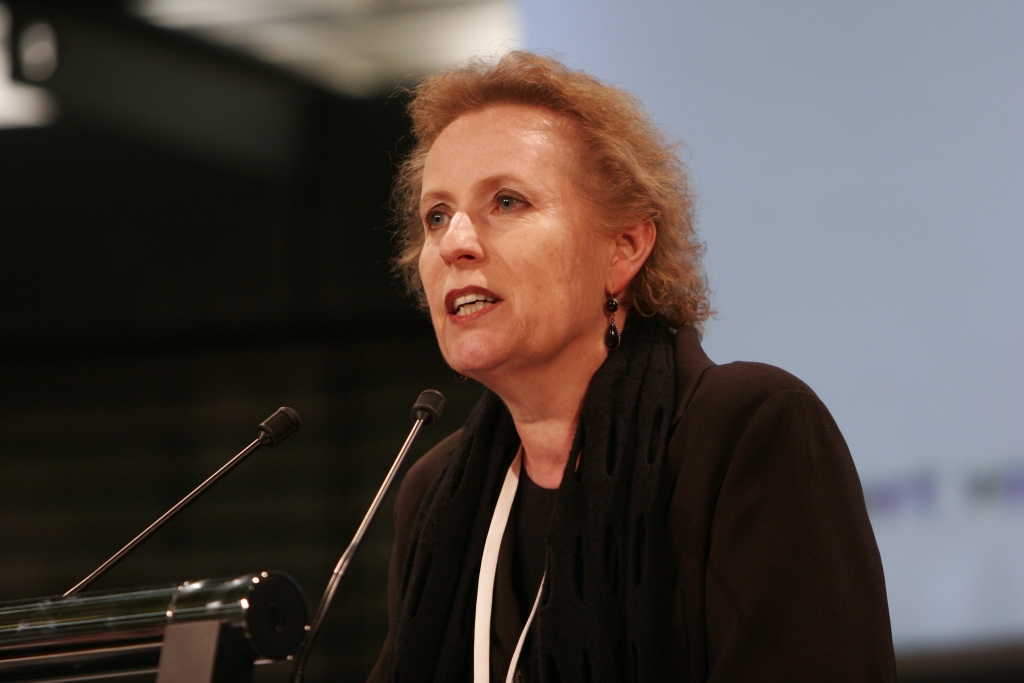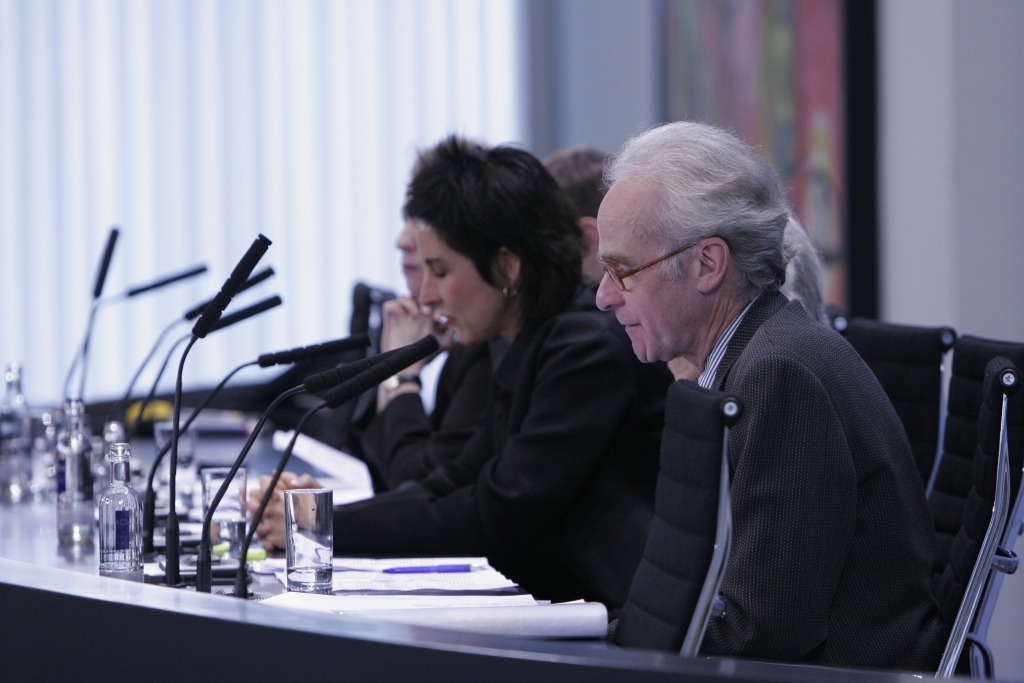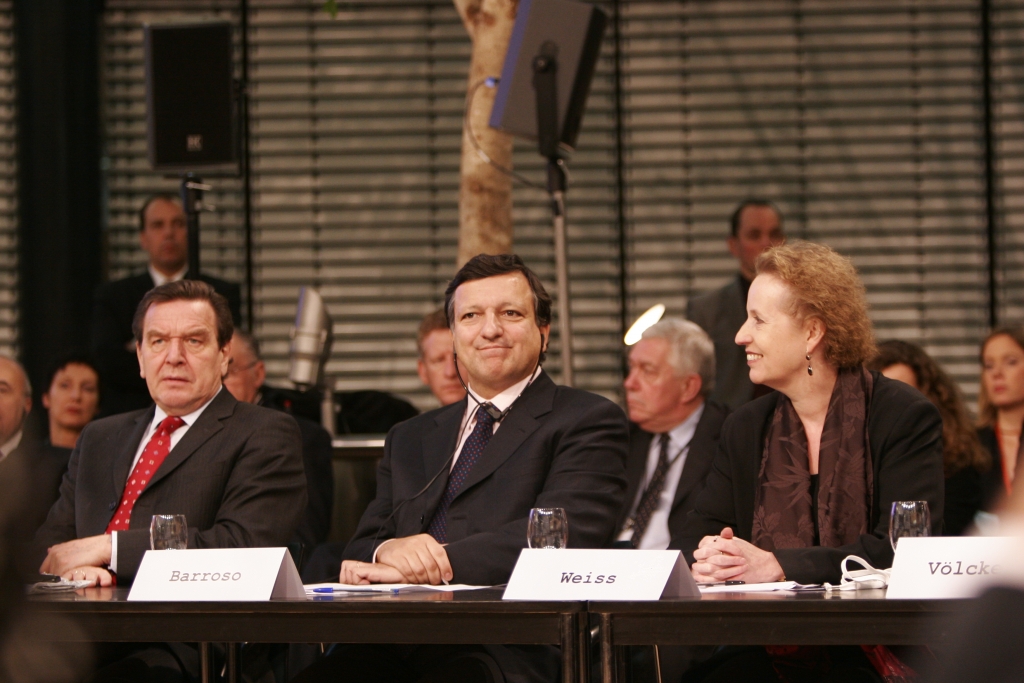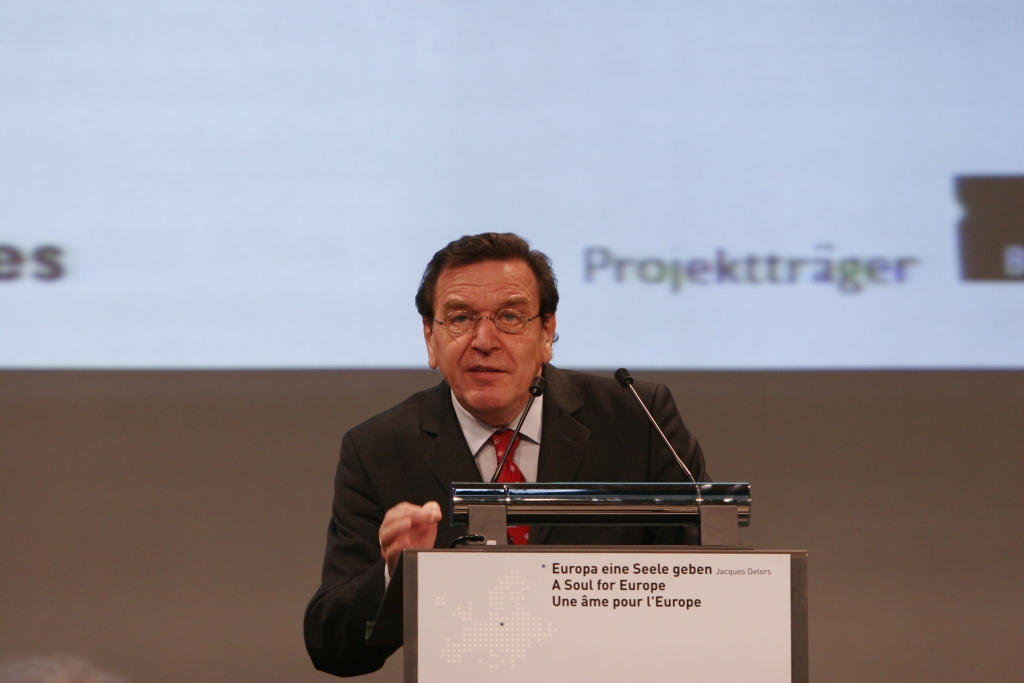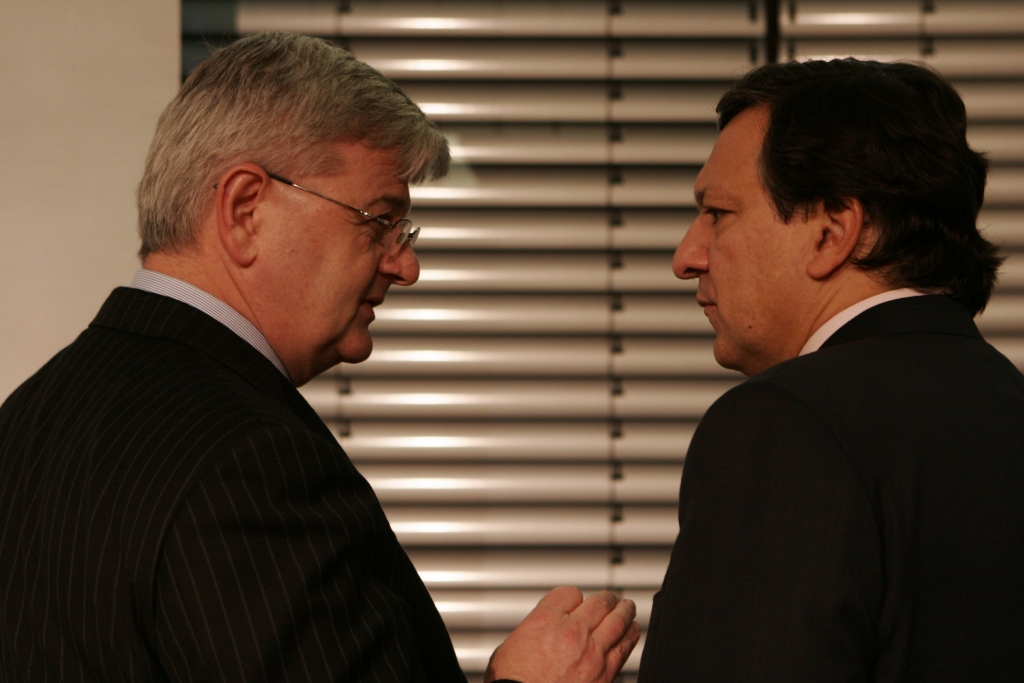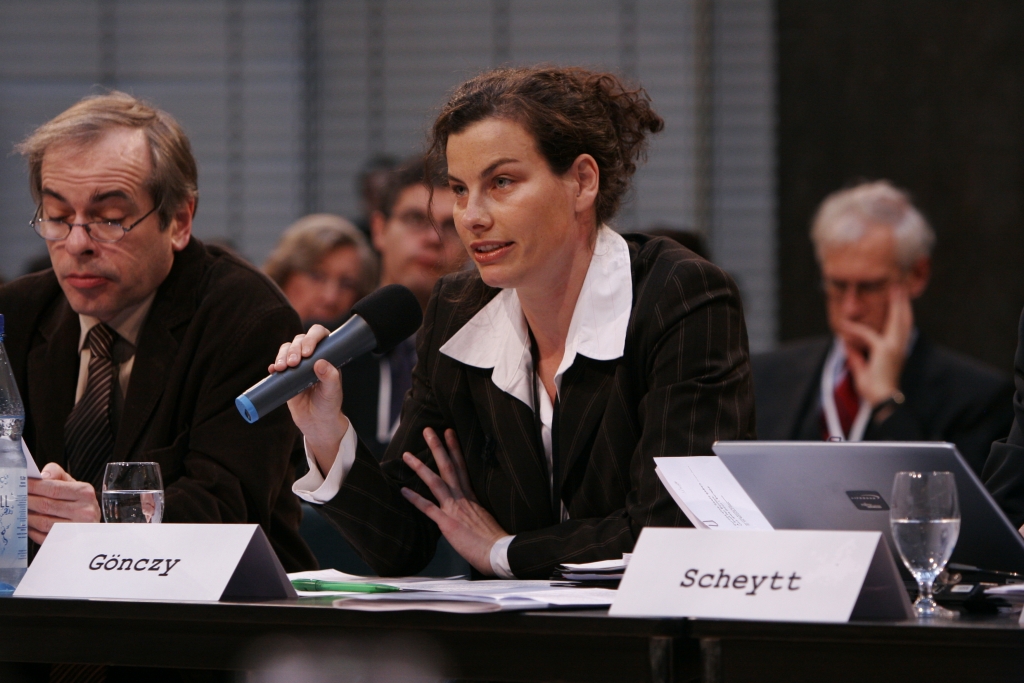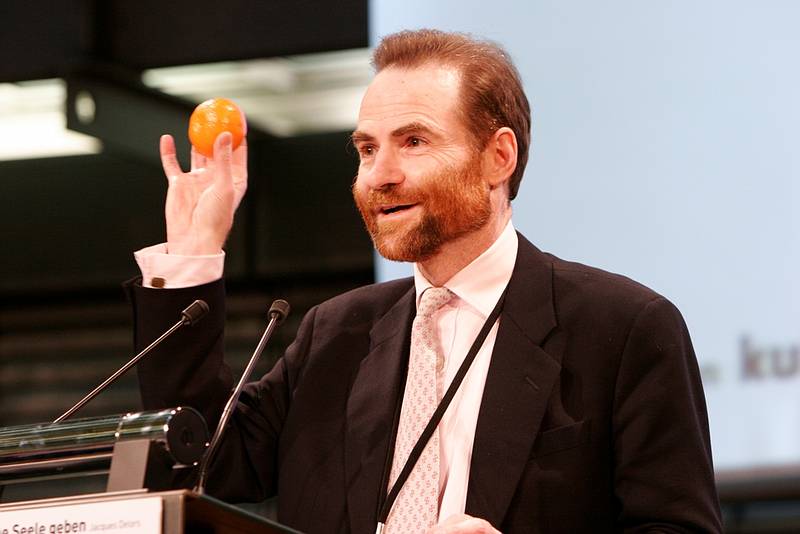Project Description
Berlin Conference 2004
From 26 to 27 November 2004, the first Berlin Conference – “A Soul for Europe” took place with around 600 participants at the Dresdner Bank next to the Brandenburg Gate in Berlin.
Berlin Conference 2004
From 26 to 27 November 2004, the first Berlin Conference – “A Soul for Europe” took place with around 600 participants at the Dresdner Bank next to the Brandenburg Gate in Berlin.
The conference brought together members and officials of the European Commission, the European Parliament, the Council of Europe, and several national parliaments and governments of the EU and beyond, along with representatives of civil society, the business sector and artists, including a wide range of young participants from non-EU countries.
Voices from the conference:
By bringing together the political, cultural and administrative leaders of Europe, the Conference initiated a process for placing sustainable cultural growth at the heart of the European project, which, in the words of Commission President Jose-Manuel Barroso, is “a structural element of our unity”. “In the hierarchy of values,” he said, “the cultural ones range above the economic ones.” He noted that “the timing of this conference is perfect. … The questions of what Europe can do for culture, and what culture can do for Europe, are not new. But in this context they have acquired a new sense of urgency. … What is needed now is sustainability of action – the translation of good intentions into good decisions.”
Creating a European public sphere: British historian Timothy Garton Ash called for pan-European media to have international debates about topics that affect everyone in Europe.
“One does not become a German. As a migrant, one remains an Iranian, a Turk, an Arab, even in the second and third generation. However, one can become a European,” said German writer Navid Kermani, who himself has Iranian origins. “One can declare oneself a European, because Europe is a community of will and not the name of a religion or an ethnicity.”
What can film do for the soul of Europe? Oscar award-winning film director István Szabó explained how films contribute to intercultural dialogue.
Construction Site Europe: Oana Radu, programme director of the Ecumest Association in Bucharest, described the European Union as seen by the countries in Eastern Europe.
Photo Gallery
Video Gallery
Culture is a structural element of our unity
On migration and European identity
What can film do for the soul of Europe?
Construction Site Europe
Fostering a European public sphere
The conference brought together members and officials of the European Commission, the European Parliament, the Council of Europe, and several national parliaments and governments of the EU and beyond, along with representatives of civil society, the business sector and artists, including a wide range of young participants from non-EU countries.
Voices from the conference:
By bringing together the political, cultural and administrative leaders of Europe, the Conference initiated a process for placing sustainable cultural growth at the heart of the European project, which, in the words of Commission President Jose-Manuel Barroso, is “a structural element of our unity”. “In the hierarchy of values,” he said, “the cultural ones range above the economic ones.” He noted that “the timing of this conference is perfect. … The questions of what Europe can do for culture, and what culture can do for Europe, are not new. But in this context they have acquired a new sense of urgency. … What is needed now is sustainability of action – the translation of good intentions into good decisions.”
Creating a European public sphere: British historian Timothy Garton Ash called for pan-European media to have international debates about topics that affect everyone in Europe.
“One does not become a German. As a migrant, one remains an Iranian, a Turk, an Arab, even in the second and third generation. However, one can become a European,” said German writer Navid Kermani, who himself has Iranian origins. “One can declare oneself a European, because Europe is a community of will and not the name of a religion or an ethnicity.”
What can film do for the soul of Europe? Oscar award-winning film director István Szabó explained how films contribute to intercultural dialogue.
Construction Site Europe: Oana Radu, programme director of the Ecumest Association in Bucharest, described the European Union as seen by the countries in Eastern Europe.
Photo Gallery
Video Gallery
Culture is a structural element of our unity
On migration and European identity
Construction Site Europe
What can film do for the soul of Europe?
Fostering a European public sphere
